Mahmoud Farshchian; The Artist Who Expanded the Boundaries of Iranian Art from Isfahan to New Jersey
Rokna Social Desk: Mahmoud Farshchian, the prominent artist from Isfahan and an internationally acclaimed figure in the field of miniature painting, passed away at the age of 95 in New Jersey, USA — an artist who elevated Iranian art to its zenith through his mystical, religious, and social works.
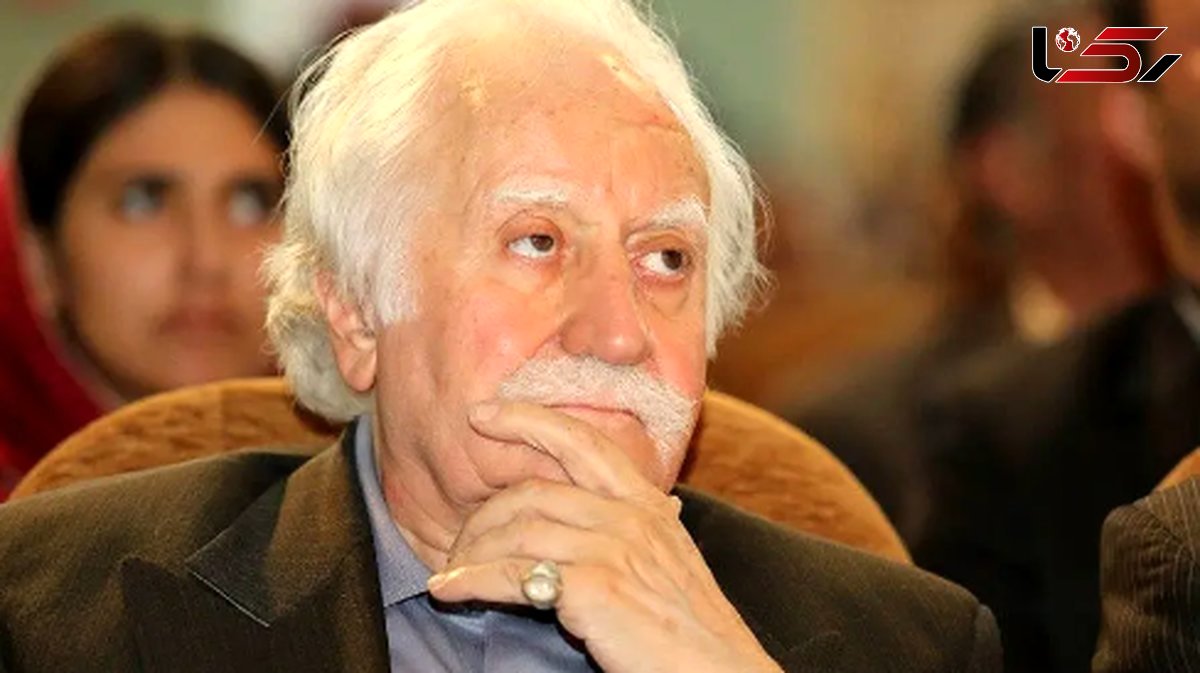
According to Rokna, from the breath of Isfahan’s alleyways to the famed halls of the world, an eternal masterpiece in Iranian painting was shaped in the name of Mahmoud Farshchian — a man who, with his astonishing brush, breathed life into colors and brought Iranian art to the global stage.
A Beginning in a Land Rich in Color and Pattern
Mahmoud Farshchian was born in the winter of 1930 in Isfahan, a city where art and beauty flow through its veins. His father, a culture enthusiast with a passion for carpets, introduced him to the delicacy of art from childhood. At the age of seven, under the guidance of distinguished masters such as Haj Mirza Agha Emami and Issa Bahadori, he learned the secrets of design and miniature painting, later taking his first steps at the Isfahan School of Fine Arts.
A Look at the World; From Europe to a Return to Iran
Farshchian’s path led him through museums and galleries in Europe, where modern and Renaissance art broadened his vision. Upon returning to his homeland, he held influential managerial positions within Iran’s art sector and, alongside teaching at the University of Tehran, trained students who today continue to carry forward his legacy.
Creating a New Style in Iranian Miniature
Before Farshchian, the most enduring miniatures were created in the context of Iran’s classical literature. However, with unparalleled courage, he introduced the depiction of social, mystical, and religious themes into this art form. His fluid lines and luminous colors, which became his signature, redefined Iranian art in a pioneering way.
The Secrets Behind a Timeless Artwork
The work Sham-e Ghariban is an example of Farshchian’s ability in visual storytelling. In this piece, which was presented to the Astan Quds Razavi, without depicting faces, he narrates the tragedy of Karbala solely through the gestures of hands and feet.
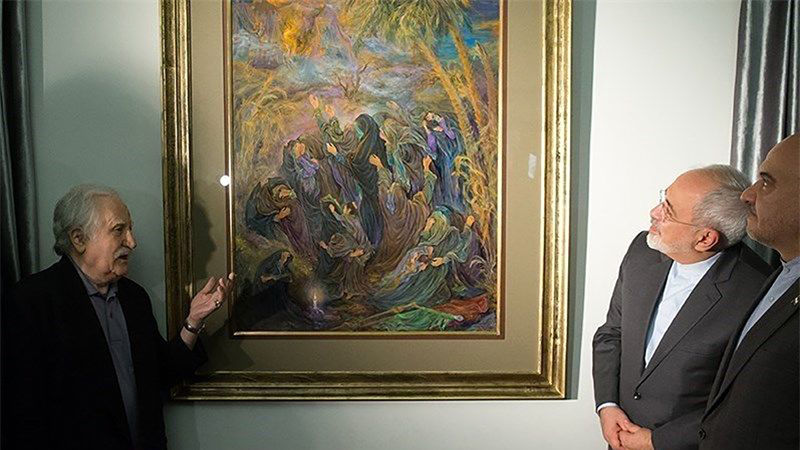
Mahmoud Farshchian – The Creation of The Fourth Heaven
The painting The Fourth Heaven portrays the moment of the Prophet Muhammad’s (PBUH) Ascension. In this work, Gabriel surrenders his wings to the wind for fear of being burned. The spirituality of the scene remains at its peak.
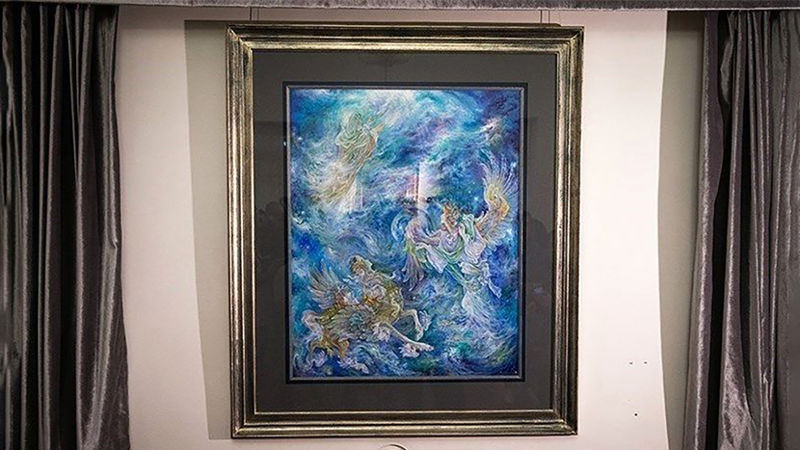
Mahmoud Farshchian – The Evening of Ashura; Tearful Eyes for Religious Art
Another masterpiece, The Evening of Ashura, reminds us of how the master depicted Imam Hussein’s riderless horse. The piece was so deeply moving that even the Supreme Leader of Iran wept upon seeing it.
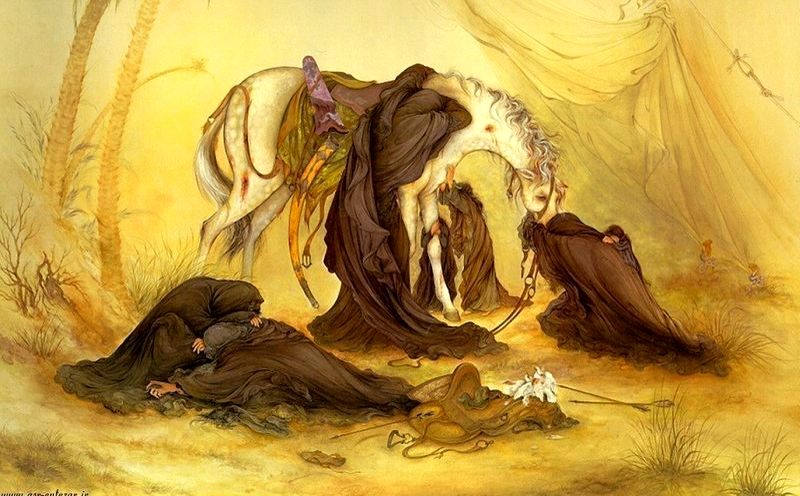
“The Great Test” and Rami Jamrah; Painting the Love of God
The Great Test illustrates the sacrifice of Prophet Ishmael (AS), with its beautiful colors and the presence of angels adding a new depth to the story.
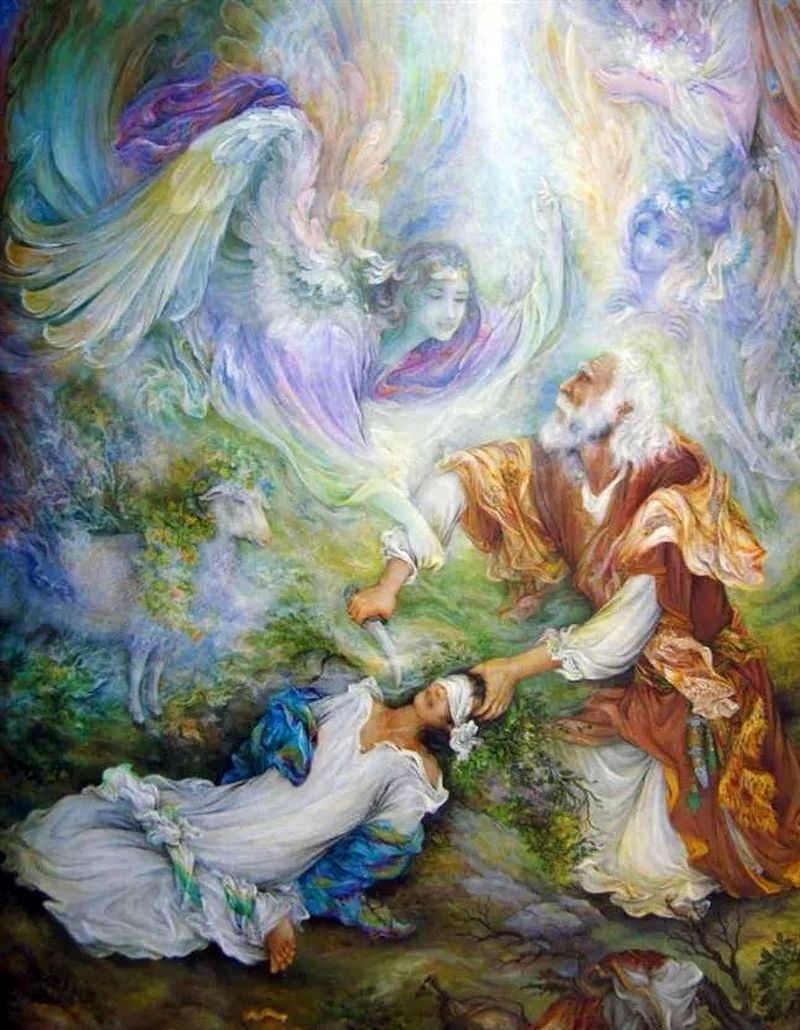
Likewise, Rami Jamrah is a unique depiction of the battle between good and evil, where Prophet Abraham (AS) defeats Satan by casting stones.
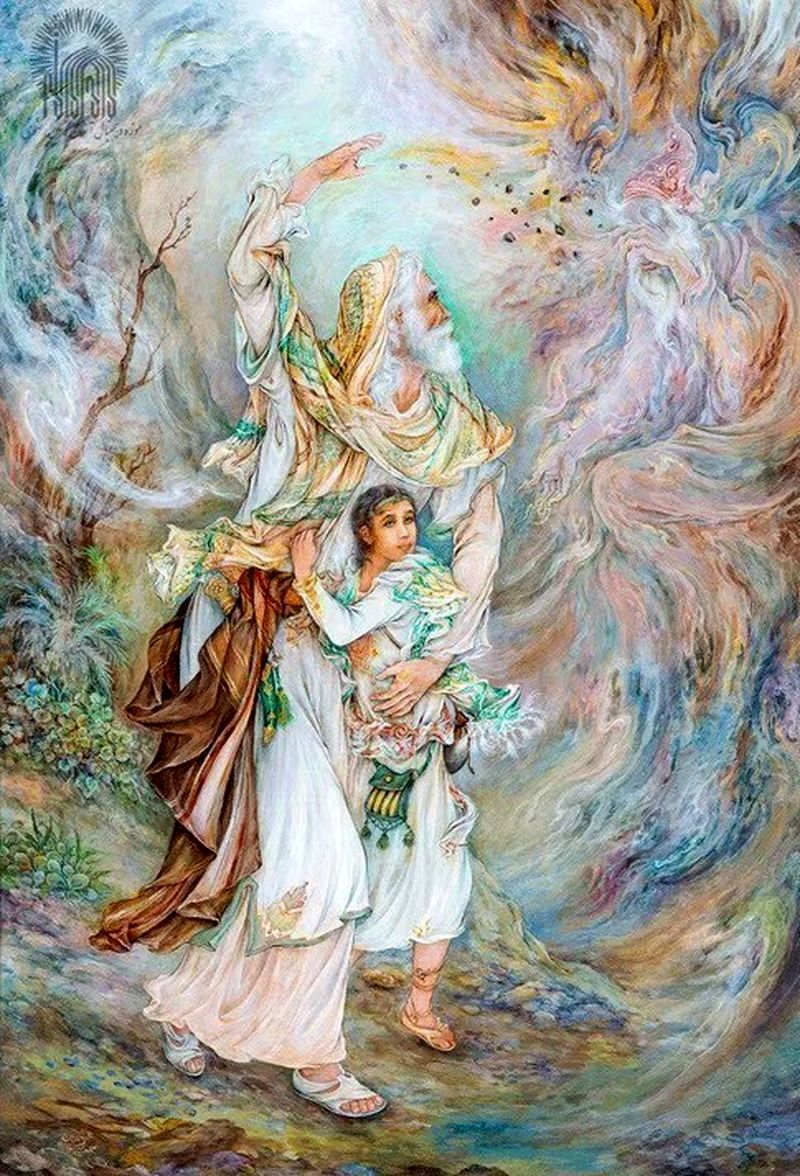
Efforts to Preserve Iranian Art
Farshchian did not confine himself solely to painting; for three decades he worked to establish a dedicated university for the arts and stood firmly against any decline in the value of Iranian art.
The Farshchian Museum; A Treasure for Art
In 2001, a museum in his name was inaugurated in the Sa’dabad Complex in Tehran, housing 70 of his works and earning recognition from experts as one of the most standard museums in Iran.
Improper Preservation of Works; A Serious Warning
Unfortunately, inadequate preservation conditions for some works at the Isfahan Museum led to the deterioration of certain pieces. Experts repeatedly emphasized the need for professional care of the museum’s collection, but accountability in this regard still demands greater attention.
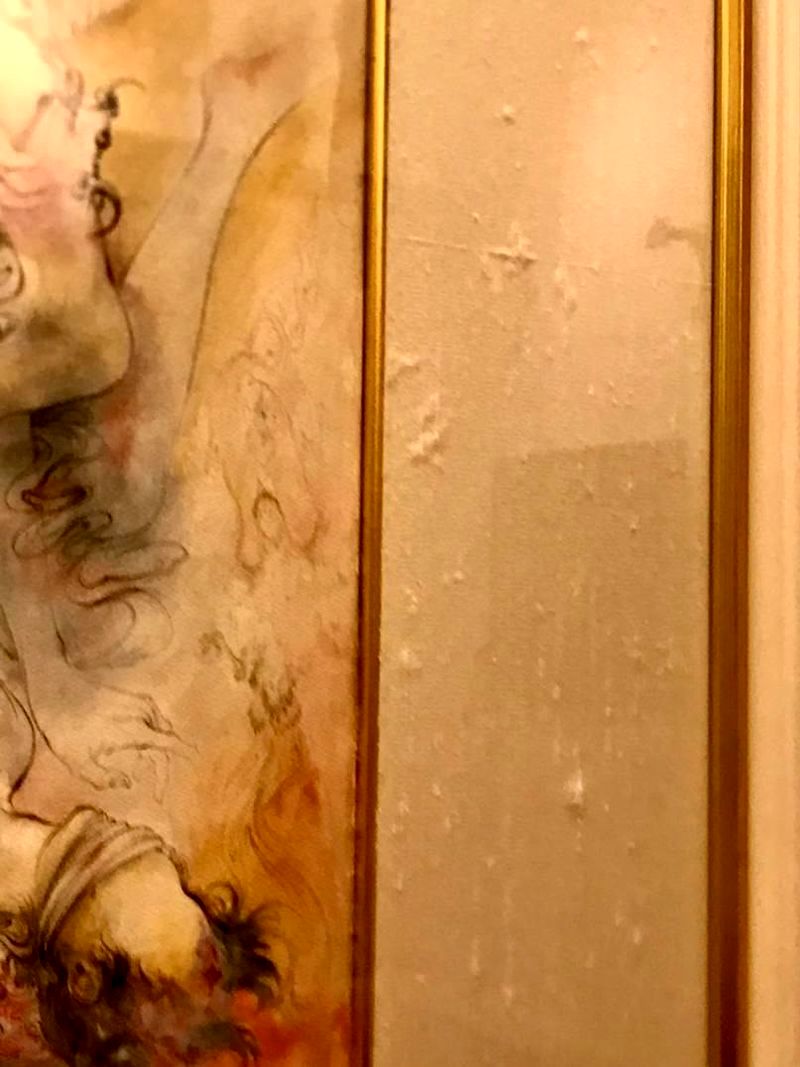
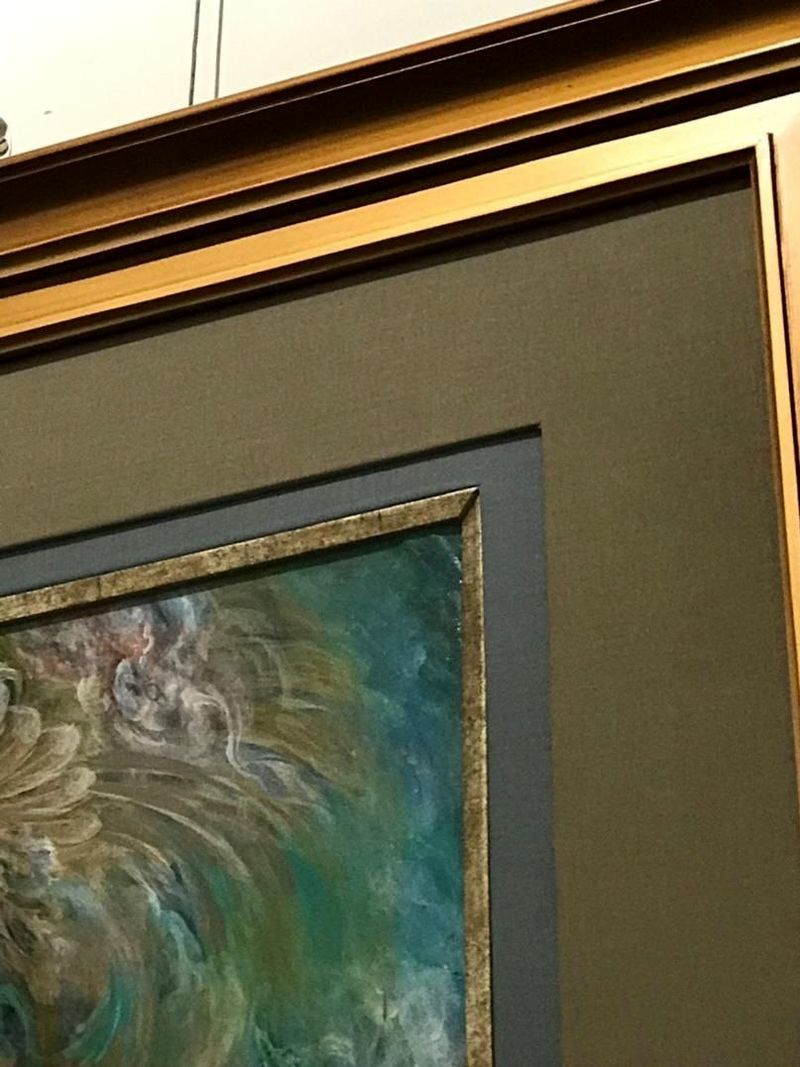
The Final Chapters of Life
Although Farshchian resided in New Jersey, his paintings continued to carry messages of light and hope. In August 2025, the cup of his life was filled with 95 years of art and effort, leaving the world of Iranian art in mourning for his loss.
Global Influence and the Immortality of Farshchian’s Art
Farshchian gave Iranian miniature a voice on the world stage. His works became ambassadors of Iran’s culture and art, and today his legacy remains alive in its radiant patterns and colors.
Send Comments